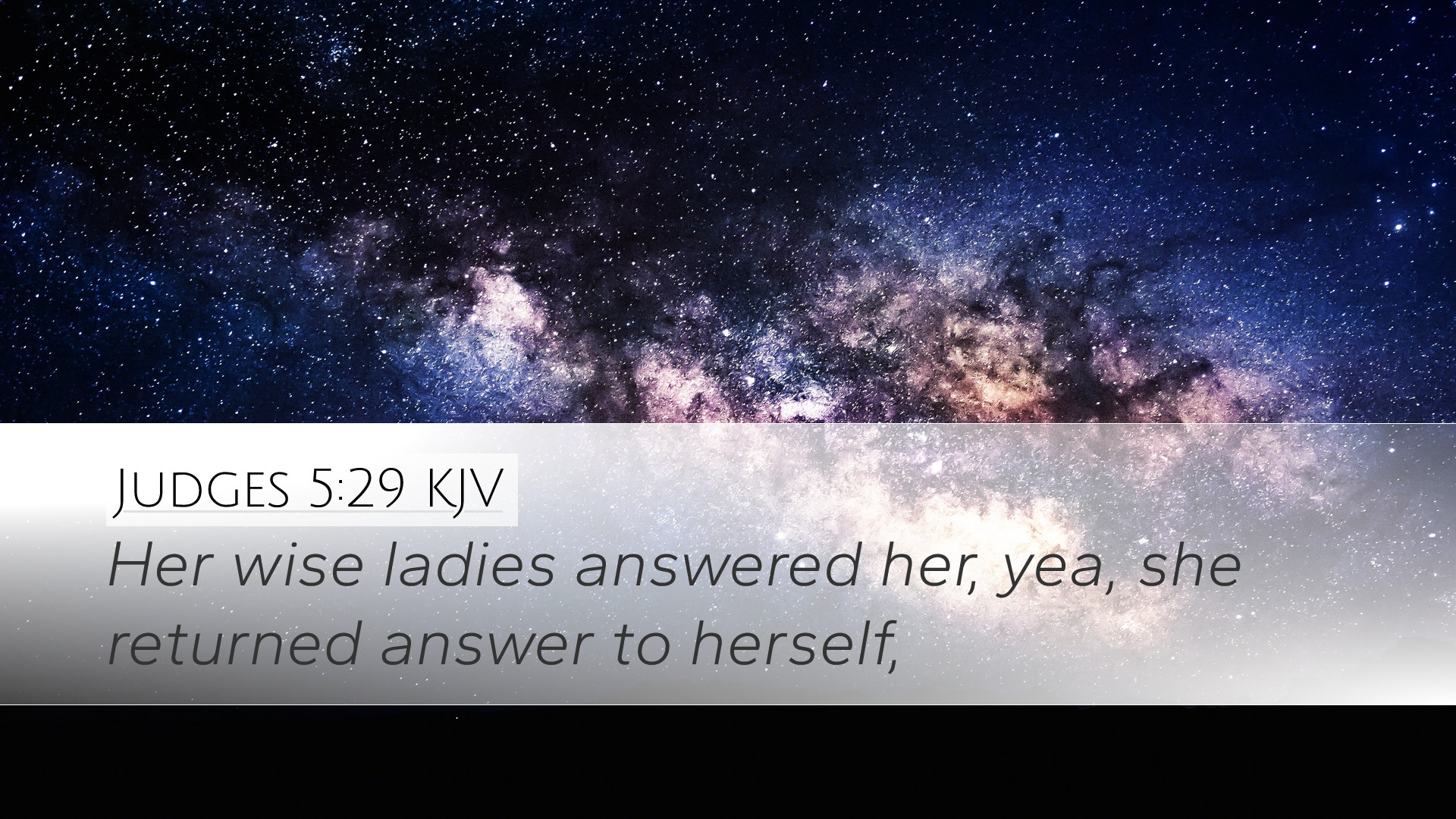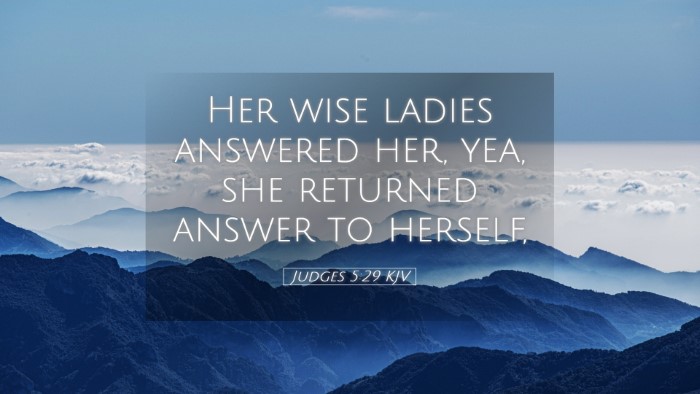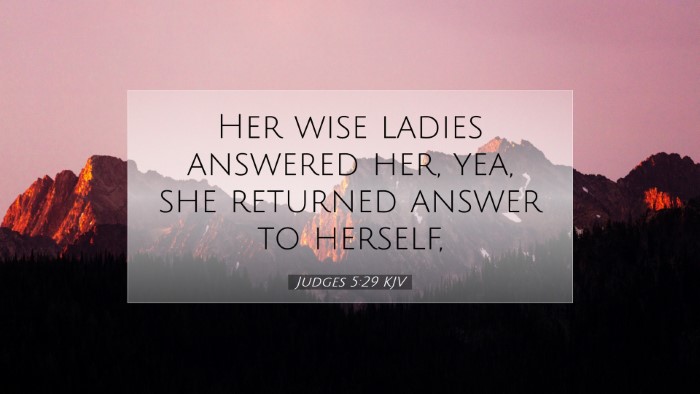Commentary on Judges 5:29
Judges 5:29 states, "Her wise ladies answered her, yea, she returned answer to herself." This verse occurs within the context of Deborah's song, reflecting on the victory of Israel over their oppressors. The song celebrates God's deliverance, recounts the roles various tribes played in this victory, and serves as a poetic response to the historical events described in the Book of Judges.
Context and Structure
The verse appears towards the end of the song of Deborah, who, along with Barak, led Israel in a successful campaign against Sisera, the commander of Jabin's army. In this climactic section, the focus turns to the reflections of the women of the city of Sisera, particularly its mother, who awaits her son’s return from battle.
Commentary Insights
-
Matthew Henry's Insights:
Henry highlights the poignant emotions of Sisera's mother as she waits in vain for her son’s return. He notes that her anticipation is mixed with denial, as the wise women around her attempt to console her with logical assertions regarding the delay. Henry emphasizes the futility of her hopes, anticipating that those who oppose God will ultimately face judgment.
-
Albert Barnes' Observations:
Barnes underscores the community's participation in Sisera's mother’s distress, reflecting on the cultural aspects of maternal expectations in that era. He points out that the phrase 'her wise ladies' indicates the presence of knowledgeable and discerning women who are trying to rationalize the situation. This illustrates a contrast between the wise and the foolish, as discussed throughout the Scriptures.
-
Adam Clarke's Commentary:
Clarke elaborates on the emotional landscape of the passage, focusing on the tragic irony of Sisera's mother’s situation. He notes that the 'wise ladies' might be employing practical knowledge to persuade her of Sisera's safety while being oblivious to his grim fate. Clarke encourages readers to reflect on the transient nature of life and the unavoidable reality of God’s sovereign rule over human affairs.
Theological Implications
This verse illustrates critical theological themes such as the sovereignty of God, the consequences of rebellion, and the nature of human wisdom versus divine wisdom. The sobering reality that God’s judgment will be executed, no matter how wise and knowledgeable the human counsel appears, is echoed throughout Scripture.
Human Wisdom vs. Divine Wisdom
The reliance on human understanding in times of crisis is a central theme in this passage. Sisera's mother represents the archetype of misplaced hope, clinging to the idea that her son is safe while the reality starkly contrasts. This serves as a cautionary tale for believers to ground their hope not in human reasoning or societal customs but in the steadfast promises of God.
The Role of Women in the Scripture
Women's roles in biblical narratives are profoundly significant. In this context, the 'wise ladies' symbolize the communal support that women provided within the culture. Their interaction serves as both an affirmation of the maternal experience and a reminder of the shared sorrow within the community during times of distress.
Conclusion
Judges 5:29 not only portrays a moment of deep human emotion but also deepens our understanding of God’s unchanging nature in the face of human folly. The interplay of divine sovereignty and the commiseration found among women is a poignant reminder of the fabric of the community that both supports and grapples with trials and tribulations. For pastors, theologians, and students, this passage encourages reflection on where true wisdom rests and the importance of directing our hopes toward God's faithful promises.


